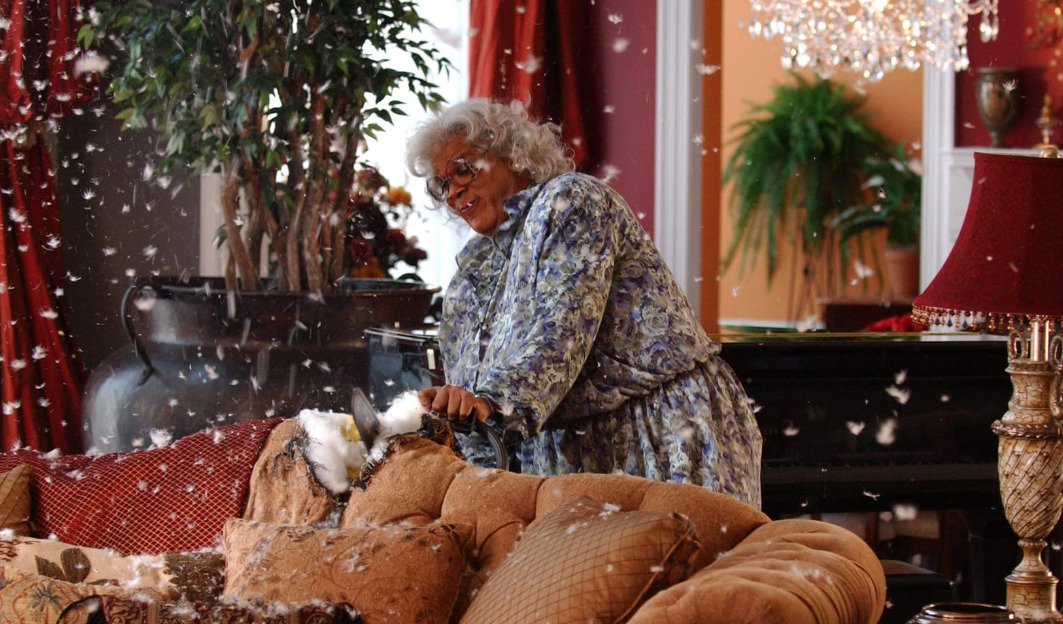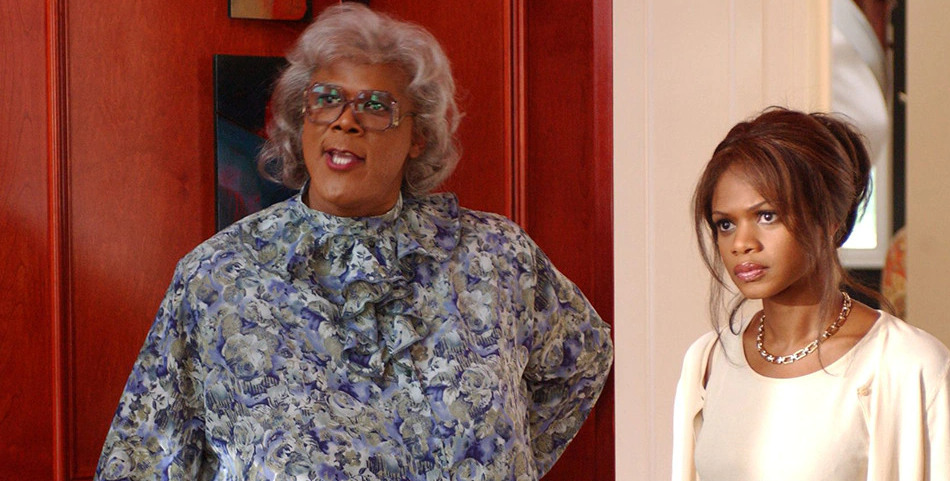Directed by Darren Grant, ‘Diary of a Mad Black Woman’ is a 2005 comedy-drama film that is the first cinematic installment in the multimedia franchise revolving around the character of Mabel “Madea” Simmons. After Helen’s husband, Charles, leaves her for his mistress, she goes to live with her grandmother Madea. Together, the two vandalize Charles’ home, and when caught, are defended in court by Madea’s nephew, Brian. Madea gets placed on house arrest and helps Brian work through his marital problems with his wife, Debrah, who is going through a drug addiction problem.
Meanwhile, Helen finally learns to live life on her own and starts to move on with a man named Orlando. However, when Charles ends up fatally wounded in an accident, Helen is forced to re-evaluate her feelings toward him. As a result, her new relationship is put in jeopardy. ‘Diary of a Mad Black Woman’ stars Tyler Perry in multiple roles alongside other talented actors like Kimberly Elise, Shemar Moore, and Steve Harris. It features well-rounded characters and explores mundane situations via an incredibly entertaining and compelling storyline, which might leave viewers wondering whether or not the movie is inspired by a true story.
Tyler Perry’s Eponymous Play And Real-Life Inspirations
No, ‘Diary of a Mad Black Woman’ is not based on a true story. However, it is inspired by Tyler Perry’s play of the same name. Perry, who plays the role of Madea in drag, originally started out by writing theater plays. He would sometimes draw inspiration for his plays directly from his own life, as was the case with ‘I Know I’ve Been Changed.’ Other times, he only drew partial inspiration for an otherwise fictional storyline. The character of Madea belongs to the latter category. Perry took inspiration for Madea’s character from the women in his own life — his mother and aunt.

Over the years, Perry has been asked about his process behind the creation and embodiment of Madea’s character numerous times. In an interview, he said, “I thought I’d imitate the funniest person that I know, and she is exactly the PG version of my mother and my aunt, and I loved having an opportunity to pay homage to them.” Perry’s pursuit of turning his hit play into a movie initially got turned down by several people. Eventually, after deciding to finance the play out of his own pocket, Perry was approached by the Lionsgate Film studio.
After Perry was satisfied with the assurance of the scope of his creative collaboration in the movie, he started working on it. Perry’s involvement in the production is one of the most important reasons behind the authenticity and relatability of the movie, ‘Diary of a Mad Black Woman.’ As a kid, Perry grew up with an abusive and neglectful father. Therefore, his mother used to have him accompany her wherever she went— as a way to protect him. He spent most of his childhood around women and witnessed the things these women went through.
As a result, a lot of his writing centers around the female experience. Perry’s insightful perception of women and their stories lends astute authenticity to ‘Diary of a Mad Black Woman.’ Helen’s actress, Kimberly Elise, once expressed that she shares her character’s worldview of “forgive, don’t forget.” Due to Perry’s genuine writing, Helen’s character arc presents the viewers with a relatable exploration of themes of infidelity and forgiveness. It’s very easy to imagine yourself in Helen’s shoes and wonder about what decisions you would have made in her place.
Helen’s situation has been the lived experience of many women. Therefore, watching as she pulls herself up and rediscovers not only satisfaction but also happiness in her life is extremely enjoyable to witness. Similarly, the rest of the cast of characters like Brian, Debrah, and Orlando fit neatly into the narrative while still portraying real-life struggles in a messy, complicated fashion. The larger-than-life character of Madea, in turn, adds high-spirited humor to the story.
Furthermore, she also reminds viewers of the tough, quick-witted women in their own lives. Ultimately, though ‘Diary of a Mad Black Woman’ may not be directly inspired by real-life events, it is still deeply rooted in reality. Like the homonymous play it draws its inspiration from, ‘Diary of a Mad Black Woman’ is also a depiction of life and the lessons we can learn from it.


You must be logged in to post a comment.